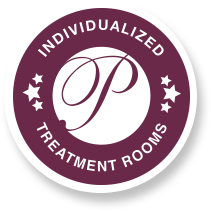A Look at Medical and Dental Sedation Throughout History
Sedation wasn’t always the accurate, effective science that it is today. These days, patient with dental anxiety can find dentists that offer safe, effective dental sedation, like Dr. Paul Mathew. The path to modern sedation was not an easy one however. Let’s explore some of the steps that brought us to modern-day sedation dentistry.
Ancient Beginnings
The use of substances to induce sleep or reduce pain dates back to ancient civilizations. The Sumerians, as early as 2100 BC, used opium extracted from poppy seeds. Similarly, ancient Greeks and Egyptians employed mandrake, henbane, and other herbs for their sedative properties.
Middle Ages and Renaissance: Rise of the Soporific Sponge
During the Middle Ages, the soporific sponge, also known as the “sleep sponge,” emerged as a rudimentary form of anesthetic in medical practices. This unique tool was essentially a sponge soaked in a concoction of potent herbs and substances known for their sedative properties. Key ingredients typically included opium, mandrake, hemlock, and other natural sedatives, which were combined in a specific formulation. Before a surgical procedure, the sponge would be soaked in warm water to activate the compounds, and then held over the patient’s nose and mouth. The vapors inhaled by the patient induced a state of unconsciousness, allowing surgeons to perform procedures with the patient experiencing minimal pain and discomfort.
18th Century: Nitrous Oxide and Ether
The 18th century marked a turning point with the discovery of nitrous oxide (laughing gas) by Joseph Priestley. Humphry Davy suggested its use in surgery, but it wasn’t until the 1840s that it was actually employed as a dental anesthetic by Horace Wells. Around the same time, William T.G. Morton demonstrated the use of ether as a surgical anesthetic, revolutionizing the field of surgery.
19th Century: Chloroform and the Advent of Modern Anesthesia
Chloroform was introduced in the 1840s by James Young Simpson and quickly became popular due to its effectiveness. However, its potential risks, including respiratory depression and cardiac arrhythmias, were soon recognized. The latter part of the 19th century saw the refinement of anesthesia techniques and equipment, leading to safer and more controlled administration.
20th Century: Barbiturates and Beyond
In the early 20th century, barbiturates were developed and became the cornerstone of anesthetic practice. Innovations continued with the introduction of local anesthetics like Novocain. The mid-20th century saw the development of more advanced intravenous anesthetics, such as propofol, and muscle relaxants, greatly improving the safety and efficacy of sedation.
Late 20th Century to Present: Tailored and Targeted Sedation
The latter part of the 20th century and the early 21st century have focused on tailoring sedation to individual patient needs and specific medical procedures. Advances in pharmacology have led to the development of drugs with fewer side effects and shorter half-lives, allowing for quicker patient recovery. Modern monitoring technology has also greatly enhanced patient safety during sedation.
Sedation, and more specifically dental sedation has come a long way since the early clumsy days of opium and ether. Modern dental sedation is quick, painless, comfortable, and wears off shortly after dental treatment with little to no side-effects. This has allowed sedation dentists like Dr. Paul Mathew to help anxious dental patients in his dental practices in Newburyport, MA and Salem, NH.






